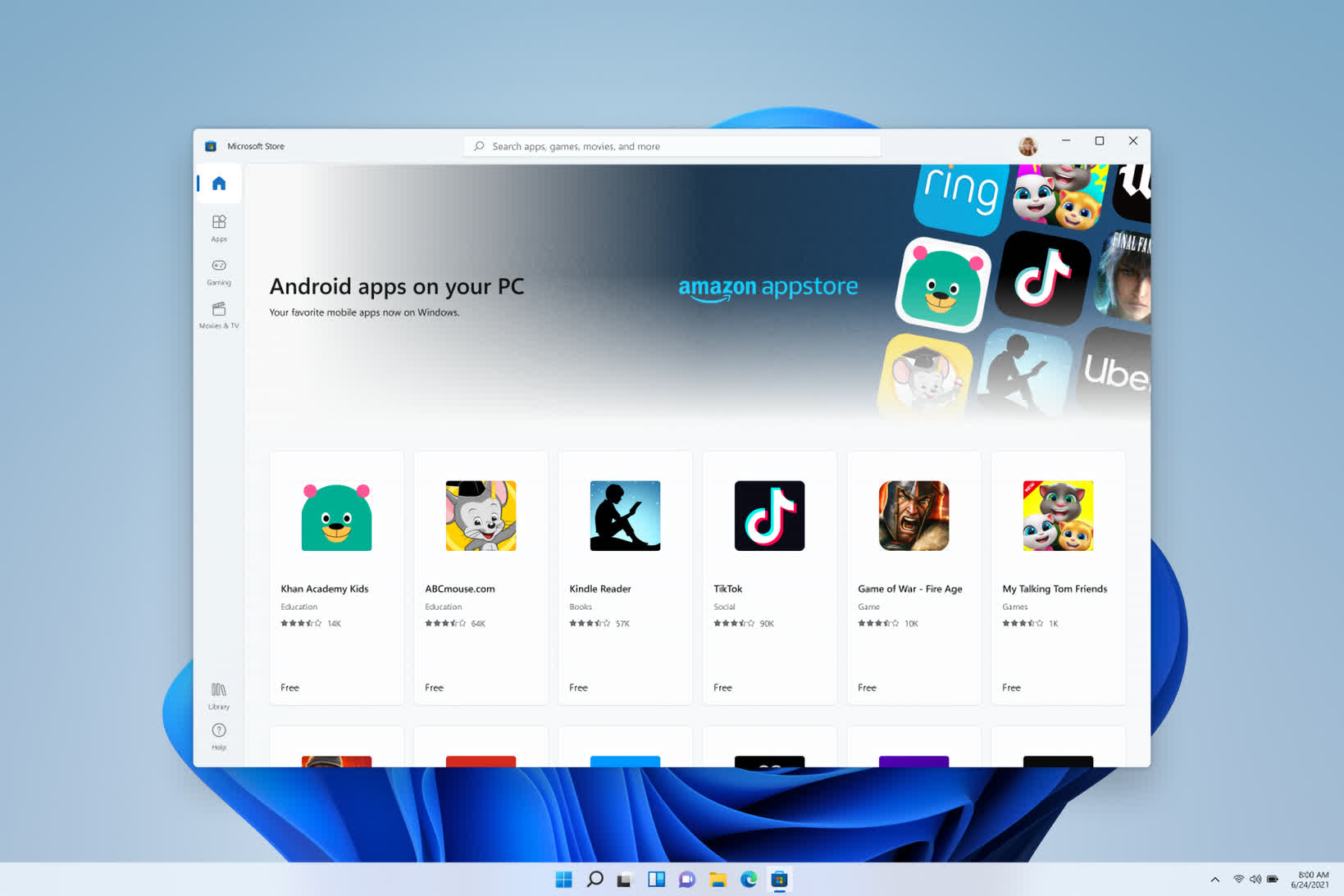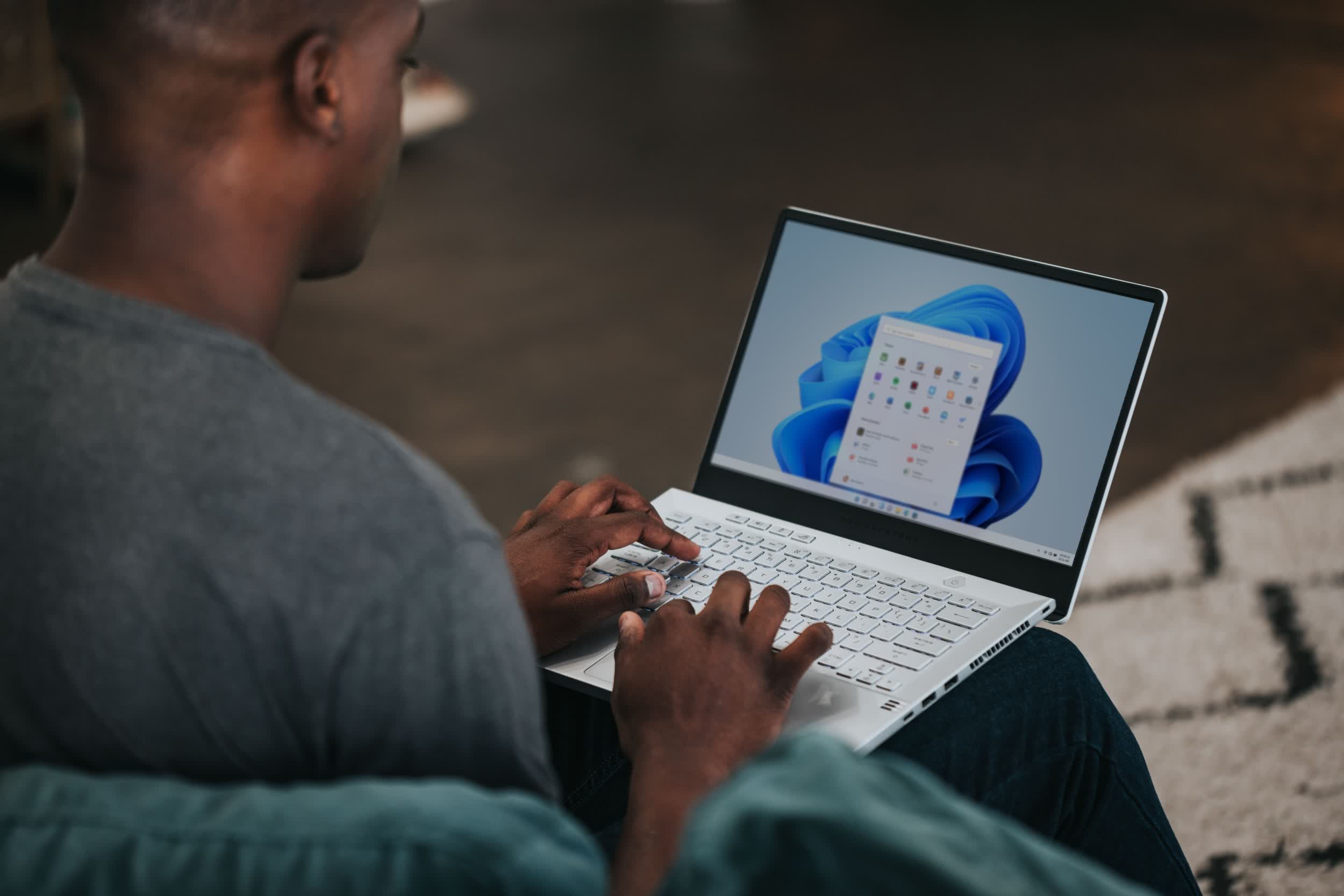In brief: The prospect of running mobile apps on Windows was one of the unique draws to Windows 11 when Microsoft first announced the operating system. Although the ability to install Android apps went public two years ago, enthusiasm for it has seemingly dissipated. Other Windows-to-Android connectivity features remain in development.
Windows 11 users have one more year to install and use Android apps. Microsoft recently announced that it will deprecate Windows Subsystem for Android (WSA) on March 5, 2025, after which users can no longer install Android apps on Windows. Previously installed apps will also cease to function.
Despite the interest WSA garnered before Windows 11's launch, the feature has drawn relatively little attention since its public preview began for users in the US in February 2022. No reason was given for the deprecation, but it may have been from a lack of use or interest. Instead of allowing users to download apps from the Google Play Store – the primary Android software distribution channel – Windows 11 received its mobile apps from the Amazon Appstore, which supports a far smaller library.

Those still interested in trying Android apps on their PCs can head to the Microsoft Store and download either the Amazon Appstore or any Android app. Either action will install WSA and Amazon's storefront. Using the Amazon store requires a separate Amazon account. Meanwhile, opening WSA enables users to change Android app settings and open an Android file browser, which allows apps and files from the two operating systems to interact. Sideloading APK files is also possible for now.
Microsoft's aborted effort with Android apps was a pillar of a broader strategy to leverage Android devices similarly to how Macs interact with iOS devices. Although the company has given up on running Android apps, other interoperability features remain, with more being tested.
A recent Windows Insider build added the ability to use an Android device as a webcam for a PC via the Phone Link app, similar to Apple's Continuity Camera. It supports video conferencing apps like Skype or Zoom and can utilize a device's back or front-facing camera. If the feature goes public, it could dramatically change the webcam market, as most smartphone cameras easily outshine a typical webcam. Other Phone Link functions also still make Android devices useful companions to Windows 11 systems.
